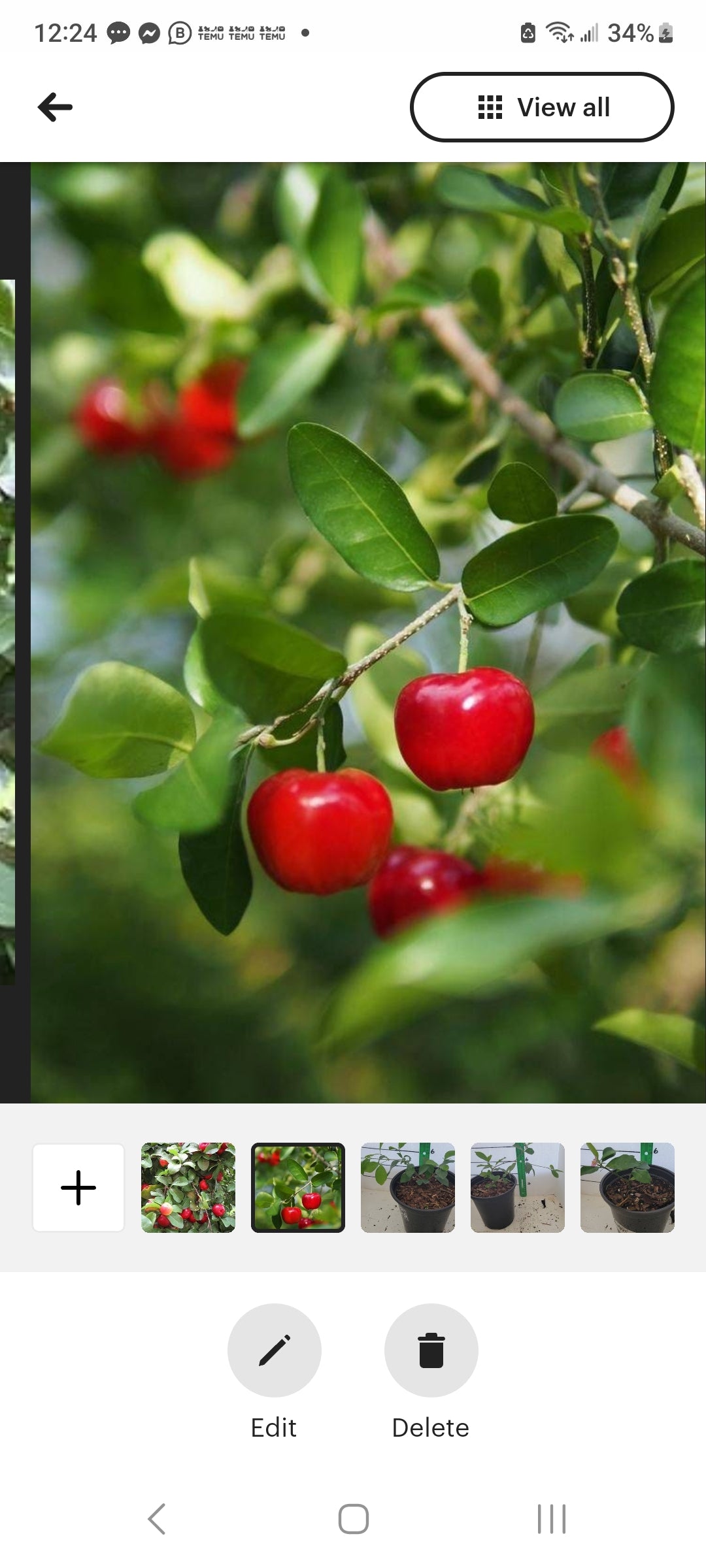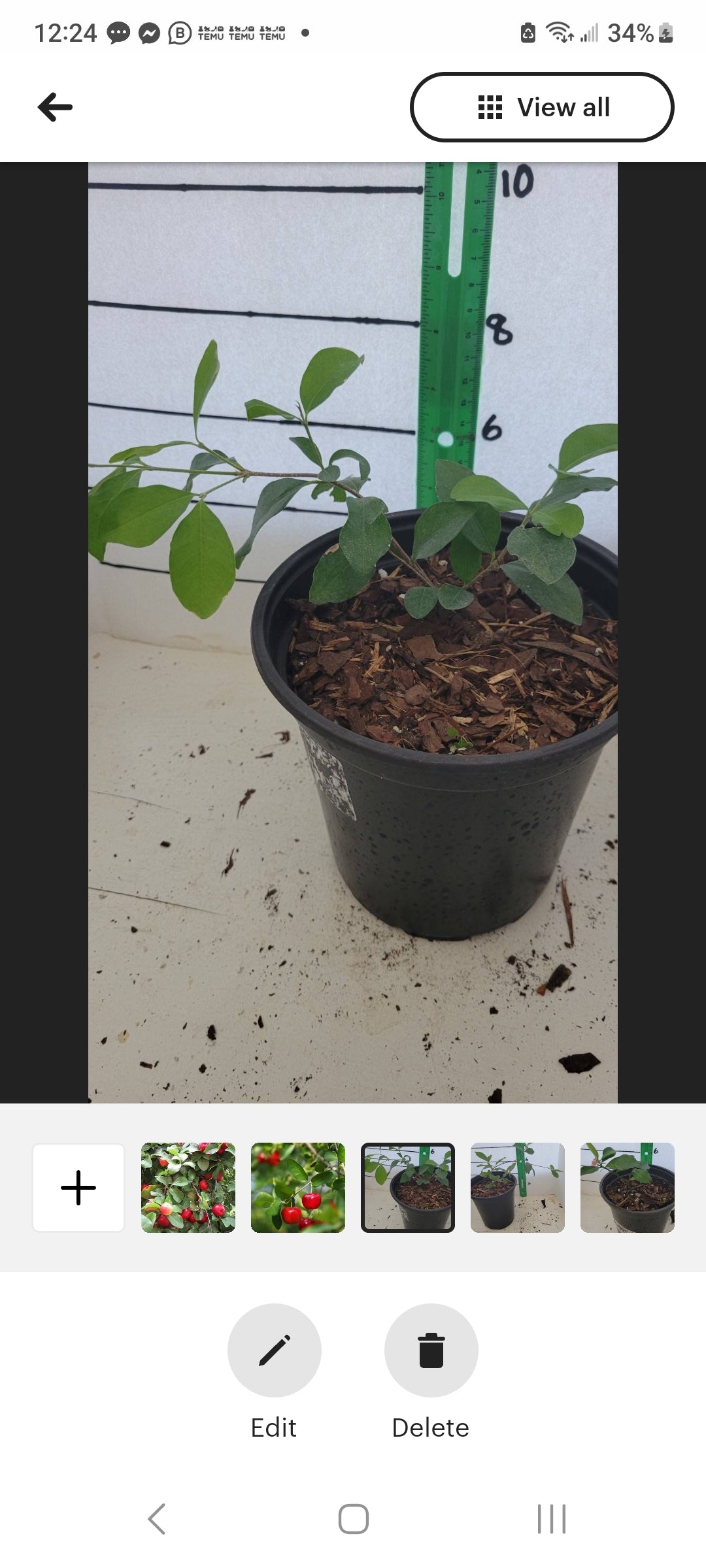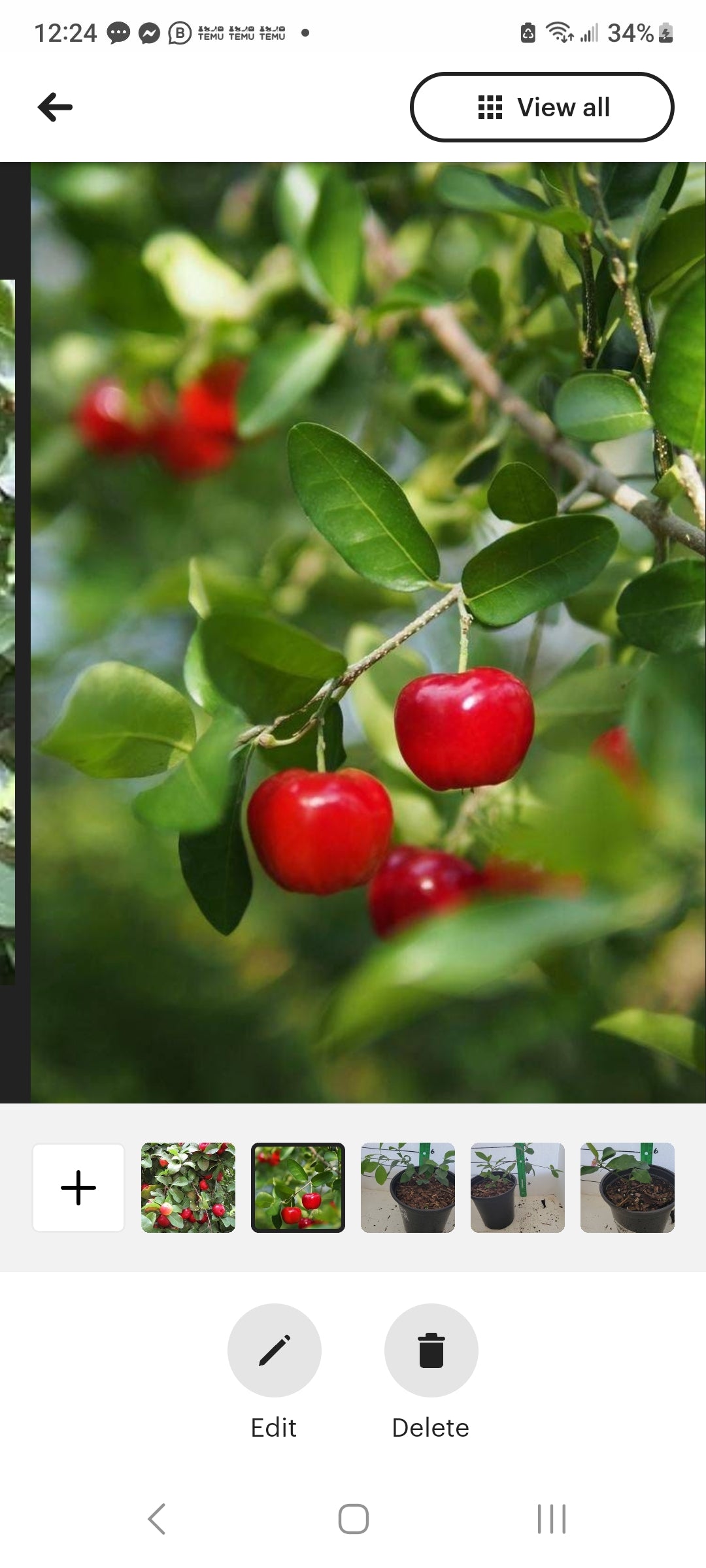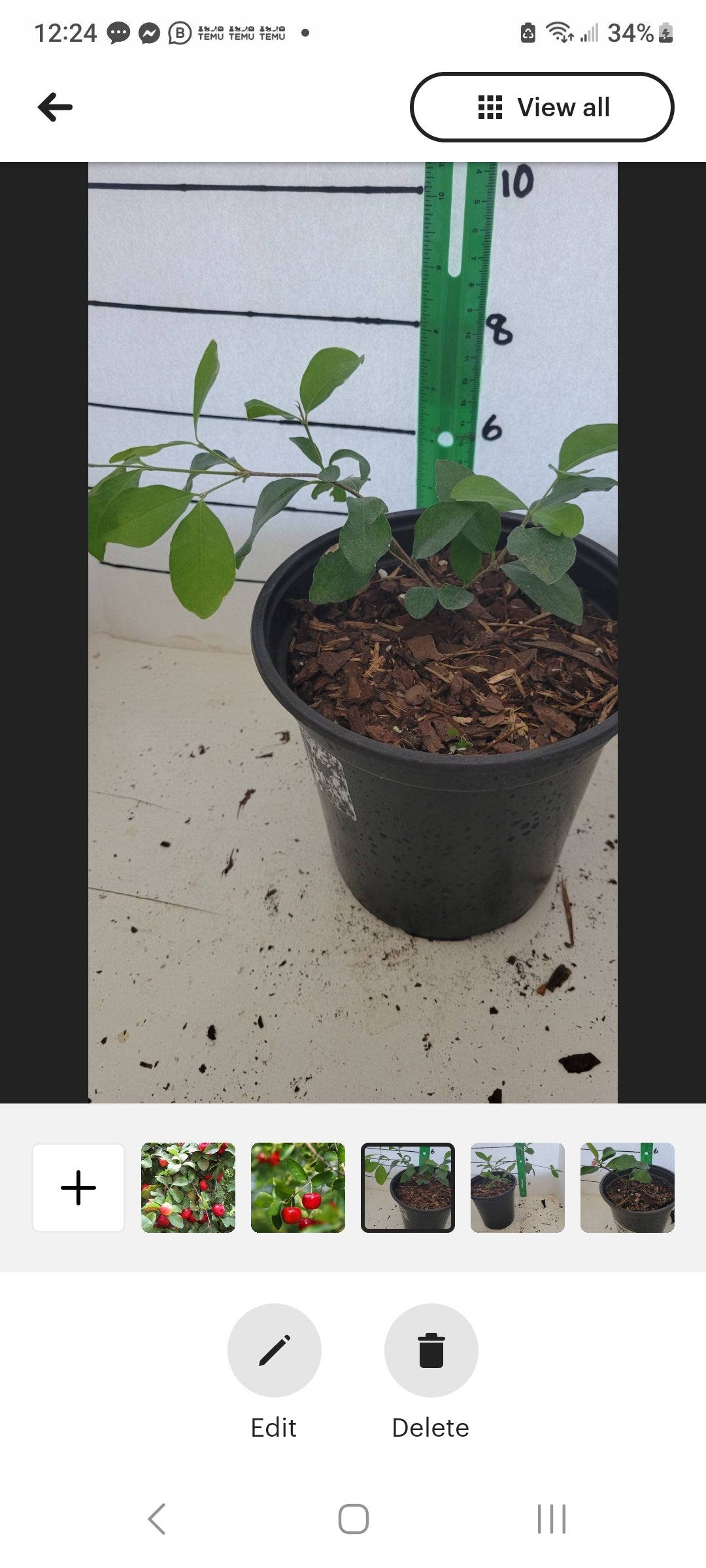Barbados Cherry four inch pot Photos b4 Shipping
Barbados Cherry four inch pot Photos b4 Shipping
Couldn't load pickup availability
Barbados cherry, also known as Acerola cherry, is a small tropical fruit that grows on a shrub or small tree native to the West Indies, southern Mexico, and Central America. The scientific name of the Barbados cherry tree is Malpighia emarginata.
Barbados cherry, also known as Acerola cherry, is a tropical fruit that thrives in warm climates. The tree is sensitive to cold temperatures and is typically grown in USDA hardiness zones 10-11, which are regions with mild to warm temperatures year-round. Here are some details about the growing zones for Barbados cherry:
1. **USDA Hardiness Zones**: Barbados cherry trees are best suited for USDA hardiness zones 10-11. In these zones, the temperatures generally do not drop below 30°F (-1°C), which is important for the tree's survival.
2. **Climate**: Barbados cherry trees prefer a tropical or subtropical climate with consistent warmth and high humidity. They thrive in temperatures between 70-85°F (21-29°C) and require plenty of sunlight to produce fruit.
3. **Growing Conditions**: The trees require well-drained soil with a slightly acidic to neutral pH. They do well in sandy or loamy soil types. Adequate watering is important, especially during dry periods, to ensure proper growth and fruit production.
4. **Protection from Cold**: In regions where temperatures occasionally drop below freezing, Barbados cherry trees may need protection during cold snaps. This can be achieved by covering the tree with a frost cloth or moving potted trees indoors during cold spells.
5. **Container Growing**: In cooler climates or areas outside of zones 10-11, Barbados cherry trees can be grown in containers and brought indoors during colder months. This allows gardeners in colder regions to enjoy the fruit of this tropical tree.
6. **Pruning and Maintenance**: Regular pruning can help maintain the shape of the tree and promote fruit production. Mulching around the base of the tree can help retain moisture and regulate soil temperature.
Overall, if you live in USDA hardiness zones 10-11 or have a suitable indoor setup, you can successfully grow Barbados cherry trees and enjoy their delicious and nutritious fruit. Proper care, attention to growing conditions, and protection from cold temperatures are key factors in successfully cultivating Barbados cherry trees.
Barbados cherries are small, round fruits that range in color from bright red to deep crimson when ripe. They resemble cherries in size and shape, hence the common name, but they are not closely related to true cherries. The fruit has a sweet and tart flavor, making it a popular choice for fresh consumption and for use in various culinary applications.
One of the most notable features of Barbados cherries is their incredibly high vitamin C content. In fact, they are among the richest sources of vitamin C in the plant kingdom, containing significantly more of this essential nutrient than oranges or lemons. Additionally, Barbados cherries are a good source of vitamin A, several B vitamins, as well as minerals like iron, calcium, and phosphorus.
Barbados cherries are commonly consumed fresh, either on their own or added to fruit salads. They are also used to make juices, smoothies, jams, jellies, syrups, and desserts. In some regions, the fruit is fermented to make wine or other alcoholic beverages.
In terms of health benefits, Barbados cherries are believed to have antioxidant properties due to their high vitamin C content. Antioxidants help protect the body from oxidative stress and inflammation, which can contribute to various chronic diseases. The fruit is also thought to support the immune system, promote skin health, aid in digestion, and potentially offer other health benefits.
Cultivating Barbados cherry trees is relatively straightforward in tropical and subtropical regions. They require well-drained soil and plenty of sunlight to thrive. The trees are also valued for their ornamental appeal, with their evergreen foliage and small, attractive flowers.
In conclusion, Barbados cherry is a versatile and nutritious fruit with a unique flavor profile and a wealth of health benefits. Whether enjoyed fresh or incorporated into various dishes and beverages, this tropical fruit is a delightful addition to any diet.
Share



